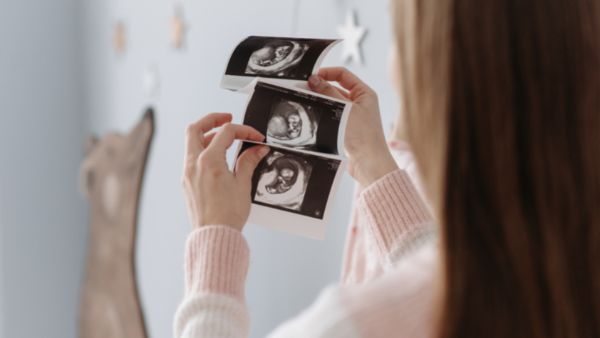Just In
- 5 hrs ago

- 6 hrs ago

- 9 hrs ago

- 13 hrs ago

Don't Miss
- Finance
 Gold Prices In US: Yellow Metal Rates Surge Amid Escalating Tensions In Middle East; Hit Record High
Gold Prices In US: Yellow Metal Rates Surge Amid Escalating Tensions In Middle East; Hit Record High - News
 There's No INDIA Alliance In West Bengal, Says Mamata Banerjee, Alleges Congress Joined Hands With BJP
There's No INDIA Alliance In West Bengal, Says Mamata Banerjee, Alleges Congress Joined Hands With BJP - Sports
 PAK vs NZ 2nd T20I: Will Rain play spoilsport in Rawalpindi on Saturday?
PAK vs NZ 2nd T20I: Will Rain play spoilsport in Rawalpindi on Saturday? - Movies
 Arti Singh & Dipak Chauhan Haldi: Wedding Function Kickstarts, Bride-To-Be Says 'Dhol Nagare Bajne Chahiye'
Arti Singh & Dipak Chauhan Haldi: Wedding Function Kickstarts, Bride-To-Be Says 'Dhol Nagare Bajne Chahiye' - Automobiles
 Suzuki Swift Hatchback Scores 4 Star Safety Rating At JNCAP – ADAS, New Engine & More
Suzuki Swift Hatchback Scores 4 Star Safety Rating At JNCAP – ADAS, New Engine & More - Education
 NLSIU Announces the Rajiv K. Luthra Foundation Grant
NLSIU Announces the Rajiv K. Luthra Foundation Grant - Technology
 Dell Introduces AI-Powered Laptops and Mobile Workstations for Enterprises in India
Dell Introduces AI-Powered Laptops and Mobile Workstations for Enterprises in India - Travel
 Journey From Delhi To Ooty: Top Transport Options And Attractions
Journey From Delhi To Ooty: Top Transport Options And Attractions
Expert Article: Why Am I Unable To Conceive The Second Time? Read About Secondary Infertility
Planning a second child can be a thrilling experience for you and your spouse. You feel physically and emotionally prepared this time around, having had prior experience caring for a newborn. You might believe that getting pregnant with your second child will be as simple as your first, but that is not always the case.
Millions of people have secondary infertility. Secondary infertility is a term fertility experts use to describe when a woman has a problem conceiving after a successful natural conception and birth. This type of infertility is widespread, especially among women who wait until their late 30s or early 40s to conceive a second time.

Is It More Challenging To Conceive The Second Time?
When it comes to fertility, previous success is no indicator of future success. It can be a shock that you do not always have control over your fertility. The loss in fertility between your first and wishes for second pregnancy can be due to several factors. Many of the factors that cause primary infertility also induce secondary infertility.
Following are some of the most common reasons for your inability to conceive again.
Age:
Because a woman's fertility drops with age, it can be more difficult to conceive a second baby than the first. Hormonal changes and the risk of certain diseases increase as age advances, and both can affect fertility. We lose eggs as we age; women in their mid-to-late-30s and older are more likely to have secondary infertility.
Low sperm count in males:
You are probably aware that sperm quantity and quality can be affected by age, genetic issues, environmental factors, fitness, and medicines. However, several routine habits can also reduce sperm production. They are as follows:
- Using testosterone boosters
- Testes being exposed to heat
The testes are on the outside of the body for a purpose. Sperm counts can be affected if they are too warm, caused by tight clothes (like biker shorts) or usage of electronic gadgets.
Polycystic ovary syndrome (PCOS):
It is a hormonal disorder or imbalance that disrupts ovulation. This causes your periods to become irregular or non-existent. Infertility can be caused by various factors, including PCOS, past operations, and infections.
Being obese or overweight:
Being overweight might make it difficult to conceive for men and women. Weight gain in women can lead to insulin resistance and increased testosterone levels, thus preventing conception. Excess weight in men can raise oestrogen levels, resulting in reduced sperm counts.
Excess alcohol:
Excessive
alcohol
consumption
might
make
it
difficult
to
conceive
in
men
and
women.
Women
who
drink
more
than
two
drinks
in
a
day
or
more
than
seven
drinks
in
a
week
will
take
longer
to
conceive
and
have
reduced
chances
of
having
a
healthy
baby.
Less
alcohol
consumption
can
also
help
men
who
are
trying
for
a
baby.
Moderate
to
high
intake
can
hamper
the
hormones
and
sperm
production.

Smoking:
While we know that smoking is bad for health, you may not be aware that it can harm your fertility. Smoking can harm eggs and create ovulation issues. Smoking increases the risk of infertility in women. Do not despair if you are in your mid-30s and are still waiting for a second child. Patience is admirable, but do not wait too long to seek assistance.
Conclusion
With the ongoing advancement in reproductive techniques and with the help of a few lifestyle changes or fertility drugs, fertility experts can help you conceive again.
-
 pregnancy parentingIndia's Maternal Mortality Ratio Drops; Healthcare Initiatives A Boon
pregnancy parentingIndia's Maternal Mortality Ratio Drops; Healthcare Initiatives A Boon -
 kids5 Common Infections In Children And What Parents Can Do About It
kids5 Common Infections In Children And What Parents Can Do About It -
 pregnancy parentingJennifer Aniston Talks About Infertility, IVF; Says, 'The Ship Has Sailed'
pregnancy parentingJennifer Aniston Talks About Infertility, IVF; Says, 'The Ship Has Sailed' -
 basicsWorld Fertility Day: The Decline of Fertility Rate In India: What Does It Mean?
basicsWorld Fertility Day: The Decline of Fertility Rate In India: What Does It Mean? -
 basicsExpert Article: Tips For Travelling During Pregnancy This Festive Season
basicsExpert Article: Tips For Travelling During Pregnancy This Festive Season -
 kidsBenefits Of Egg For Babies; What Is The Right Age To Include Eggs In A Baby's Diet?
kidsBenefits Of Egg For Babies; What Is The Right Age To Include Eggs In A Baby's Diet? -
 basicsWhat Are Contraceptive Injections? How Do They Work? Advantages And Disadvantages
basicsWhat Are Contraceptive Injections? How Do They Work? Advantages And Disadvantages -
 basicsKarva Chauth 2022: Is It Safe To Fast During Pregnancy? Dos And Don'ts For Pregnant Women During Karva Chauth
basicsKarva Chauth 2022: Is It Safe To Fast During Pregnancy? Dos And Don'ts For Pregnant Women During Karva Chauth -
 basicsWorld Mental Health Day 2022: Expert Opinion On Impact Of Infertility On A Couple’s Mental Health
basicsWorld Mental Health Day 2022: Expert Opinion On Impact Of Infertility On A Couple’s Mental Health -
 prenatalExpert Article: Getting Ready For Pregnancy At An Advanced Age
prenatalExpert Article: Getting Ready For Pregnancy At An Advanced Age -
 kidsTwin Viral Concerns Of COVID-19 And Monkeypox In Kids: What Parents Should Know
kidsTwin Viral Concerns Of COVID-19 And Monkeypox In Kids: What Parents Should Know -
 kidsWhy Do Kids Get Worms? How To Prevent Worms In Children?
kidsWhy Do Kids Get Worms? How To Prevent Worms In Children?


 Click it and Unblock the Notifications
Click it and Unblock the Notifications



